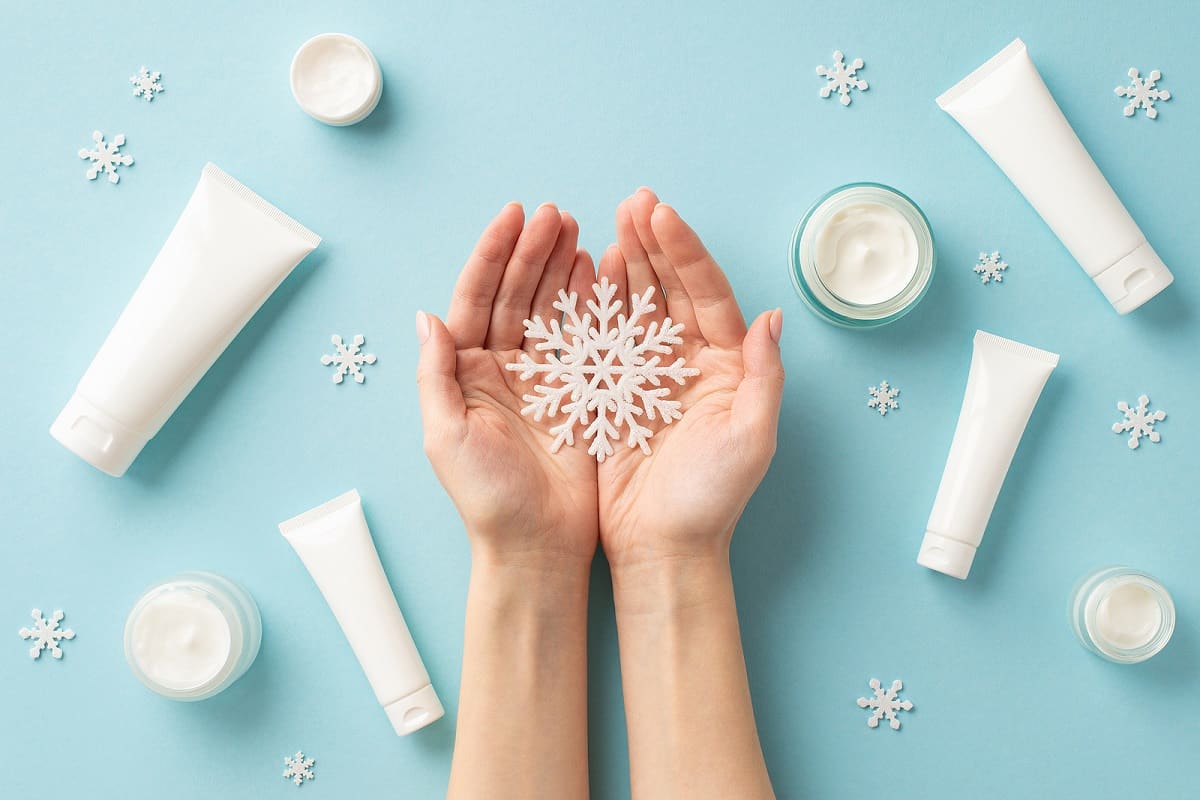- How to Select the Right Color for Sunshades - January 17, 2025
- Fun New Year Events and Activities to Enjoy in Arizona - January 6, 2025
- How Sun Shades Help With Your Allergies - December 27, 2024
We are in the middle of winter here in the Phoenix area and though we don’t experience winter as the cold snowy environment of the east or high mountain altitudes, it can still be a difficult time for your skin. Even though the highs this time of year range from 66°F to 69°F, and rarely fall below 57°F, it still may be cold enough to run our heating system or use a space heater. This, however, can lower the humidity in our homes, and deplete moisture from the skin. It’s common in the height of summer to suffer from dryness due to the heat and sun but winter offers a new set of challenges in skin hydration. Here are a few tips on keeping your skin moist, even when the humidity is low and cold.
Support your skin through desert winters with moisturizing before and after bathing.
The Sonoran Desert climate can be tough on your skin, especially in the winter months. The cooler air makes your environment inside and out dryer and lots of sunny days can still damage and impact your skin. While baths and showers can be invigorating, we recommend minimizing the amount you take daily- especially with an ongoing water supply crisis throughout the Sonoran communities. Take shorter showers everyone to two days at most to keep the moisture in your skin. We recommend apply oils and moisturizers before and after bathing. Recommended oils include jojoba oil or coconut oil and nourishing moisturizer include Jergens, Cetaphil, CeraVe and Aquaphor. For those who love oil, try massaging and covering your body 10 minutes before your bath or shower to allow your skin to absorb moisture. This ensures your skin holds moisture as the water seals the moisture content of oils and makes it easy for the skin to absorb. After the bath most moisturizers work best when the skin is hydrated. Soap and water can draw moisture out of the skin, especially when water completely evaporates from the body after a shower. After bathing, try sealing in the moisture with a body lotion while your skin is still damp.
Sun Protection!
Even though the staggering hot days of summer and late Spring may feel far this time of year, we still must be mindful of the sun. Even in the winter, mostly clear and cloudless days make way for quite a lot of sun exposure that can dry out and damage the skin. It’s a fine balance of getting enough vitamin D from the sun to help the body absorb and retain calcium critical for building bone, reduce cancer cell growth, help control infections and reduce inflammation. However there clearly can be too much of a good thing. Along with the light and heat the sun holds dangerous ultraviolet rays which can cause skin cancer and prematurely age the skin. Many make the mistake of thinking they don’t need to protect themselves from the sun the way they did in the summer, Spring and Autumn. We recommend never leaving the house without a sunscreen with an SPF (sun protection factor) or containing zinc oxide or titanium dioxide and should be applied every three to four hours for optimum results. This is especially important when the sun’s rays are the most powerful. It’s the highest in the sky between about ten o’clock and two o’clock pm.
In addition, sunscreen alone is not enough. Even if it feels warm, it’s better for your skin to wear light long sleeves and long pants to keep the sun off your skin and a wide brimmed hat to block sun from your face. Even when you are inside or driving in your car, the sun’s rays can penetrate your windows—especially UVA rays which contribute to premature aging. This means it’s best to apply sunscreen to all sun exposed skin every day and don’t forget your lips as well. A moisturizing lip sunblock will keep your lips moist and supple.
The winter season is a wonderful time in the desert, but you have to stay safe. One way to stay out of the sun and keep your skin looking and feeling the best is our window screens and patio shades, which not only keep it shady but block out 90 percent of harmful UV rays. To find out more, schedule a free consultation today.

